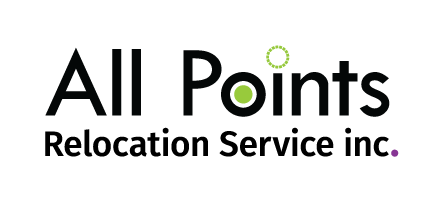In today’s globalized economy, the process of relocating employees can be both intricate and costly. For Canadian businesses, understanding tax benefits like the Goods and Services Tax (GST) input credits can not only ensure compliance but also unlock significant cost-saving opportunities. This article explores why using a Canadian relocation company in Canada for corporate relocation can be a financial game-changer.
What are GST Input Credits?
GST input credits, also known as input tax credits, are a crucial element of Canada’s tax system, allowing businesses to recover GST paid on business-related purchases and expenses. When a company buys goods or services to generate taxable sales, they pay GST on these purchases. However, they can claim these amounts as input credits, reducing their net GST payable. Essentially, businesses become mini tax collectors, but with the benefit of offsetting their own tax liabilities.
Take this example: when a company purchases office supplies or pays for services required for business operations, the GST paid on these transactions can be claimed back as an input credit, as long as the expenses are business-related and properly documented. This system encourages compliance by offering businesses a direct way to lower their tax liabilities, presenting a win-win situation for the business and the tax system.
The Advantage of Using Canadian RMCs for Corporate Relocation
There are many reasons, but focusing on today’s topic, for Human Resources departments, especially those involved in employee relocation services, choosing a Relocation Management Company (RMC) can significantly impact the financial aspect of GST. Canadian RMCs are registered for GST and issue invoices with their GST registration numbers, a key requirement for claiming input credits.
In contrast, American RMCs often don’t include GST registration numbers on their invoices, and their software might not even allow for a GST breakdown. This oversight can result in Canadian businesses losing out on input credits, leading to direct financial losses. Consider these scenarios:
- Real Estate Commissions: A $30,000 commission without GST input credit results in a loss of about $1,500.
- Household Goods Movement: A $15,000 expense leads to a loss of about $750 in unclaimed input credits.
This is not to mention all of the hotel costs, flights, meals, legal fees, etc. Multiply these costs by 10 relocations per year, and you could lose over $25,000 if you work with an American RMC that can’t provide GST reporting. HR would normally scrutinize such costs, yet this financial loss might go unnoticed when dealing with a relocation company that lacks GST compliance.
Why HR Should Care
Human Resources professionals must understand these financial nuances when selecting a vendor for employee relocation services (so should procurement which works diligently to reduce costs). By choosing a Canadian relocation company in Canada, HR can ensure compliance with tax laws while maximizing cost efficiencies through GST input credits. This approach reduces the overall cost of corporate relocation and can enhance the strategic value of HR operations.
Conclusion
Partnering with a Canadian RMC offers more than logistical support for relocating employees—it provides tangible financial benefits through the recovery of GST input credits. By understanding and leveraging these tax credits, HR departments can boost their strategic value to their organizations, ensuring every dollar spent on relocation services is optimized for efficiency and cost savings.
For Canadian businesses, the choice is clear: selecting a Canadian relocation company not only ensures compliance with tax regulations but also offers a significant financial advantage. HR departments can turn relocation into a cost-saving opportunity by tapping into these GST input credits.

